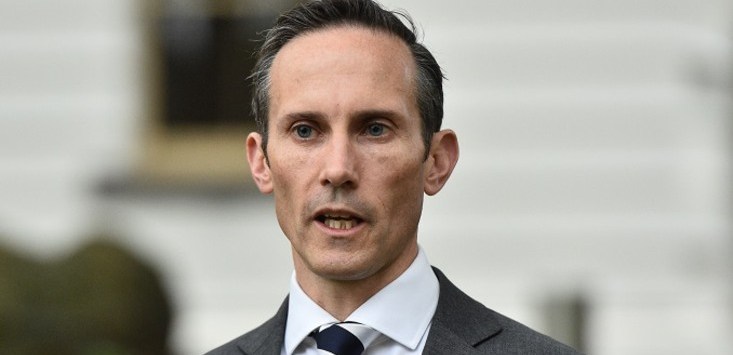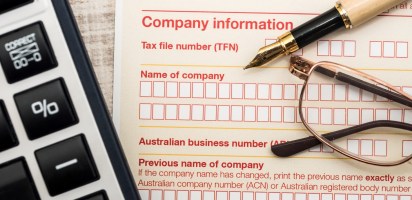
Federal MP Andrew Leigh. Source: AAP.
Accommodation booking platforms must present a “pretty good case” for contract terms that keep hotels from offering cheaper prices on their own websites, Competition Minister Andrew Leigh says, as the federal government considers legislation outlawing ‘price parity’ arrangements which see some businesses coughing up nearly 30% of the total value of bookings processed.
A new Treasury consultation, which opened on Friday, seeks stakeholder views on how online travel agents (OTAs) like Expedia and Booking.com strike deals with the hotels, motels, resorts, and B&Bs listed on their platforms.
OTAs have become a go-to resource for Australian travellers, who flock to those sites to plan their holidays and compare prices across a number of accommodation providers at once.
Small accommodation providers sign up to those platforms as inclusion among an OTA’s search results can expose local businesses to more prospective guests than they could reach on their own.
Get daily business news.
The latest stories, funding information, and expert advice. Free to sign up.
Thousands of properties across the country now pay commission fees for that exposure, with businesses paying a double-digit percentage of the total value of bookings processed through an OTA.
But to ensure accommodation businesses pay for those benefits, some OTAs insist on ‘price parity’ clauses, barring hotels from offering cheaper rates on competing platforms or on their own websites.
Ensuring businesses offer guests the lowest price possible through an OTA increases the likelihood a customer will book through that platform — and the odds of the OTA earning a commission on the sale.
Concerns over such contract terms are not new.
Before the COVID-19 pandemic ravaged the industry, Richard Munro, chief executive of the Australian Accommodation Association, called unfair OTA contract terms the “number one issue in our industry.”
Following an Australian Competition and Consumer Commission investigation in 2016, Expedia and Booking.com agreed to amend terms barring accommodation providers from listing lower prices at other OTAs or through their offline channels.
And in 2019, Expedia agreed to waive its ‘narrow rate’ price parity clauses, which kept hotels from listing lower prices on their own websites.
Seeking an even tighter crackdown as shadow assistant treasurer, Leigh pledged a Labor government would outlaw such terms if it won the 2019 federal election.
With Labor now in power, the Treasury is formally investigating the continual use of price parity clauses across the accommodation sector, with the goal of identifying “if any action, including legislative change, is required to address this”.
Now Assistant Minister for Competition, Charities and Treasury, Leigh told SmartCompany unfair contract terms in the hotel booking sector are “still a considerable concern”.
“And it matters for people who are wanting to run an efficient accommodation business that they can keep as much of their overall revenue as possible for the people that change the sheets, clean the rooms, and manage the check-in,” he said.
Price parity contracts make it harder to “offer a deal direct”
Leigh says a Treasury consultation was appropriate, as feedback from accommodation providers suggests price parity clauses are still cutting into their bottom line.
Online booking platforms are “taking a sizeable chunk of the room rate, and then a sort of acting as monopoly gatekeepers into the sector”, he says.
“More and more of the bookings are coming through platforms such as Booking.com and Expedia. And that’s made it harder for accommodation providers to offer a deal direct.”
Echoing ACCC investigations into the behaviour of e-commerce marketplaces and search engine giants, the Treasury consultation will also hear from OTAs about how they organise their search results — and accommodation providers who fear their listings have been unfairly demoted.
After Expedia’s 2019 about-face on price parity clauses, the platform told SmartCompany that any hotel “offering relatively poor deals to consumers who are used to shopping and booking on Expedia sites… may find itself ranked below its competitors”.
“In some sense, there’s no point in being listed on a platform if you have to be searched for by name,” Leigh said.
“If you’re not showing up in the search rankings, you’re really not showing up at all.
“So we need to better understand whether there’s algorithmic punishment going on, as well as simply banning from the platform.”
Price parity clauses can negatively impact consumers too, Leigh suggested.
Those terms mean hotels may be forced to list their rooms at the same cost across multiple OTAs — even if the commission rate at some is lower than others.
In this way, the cost paid by travellers could remain artificially high across the board, even if accommodation providers could technically lower their rates on some OTAs while still turning a profit.
“Australians are under cost-of-living pressure and that applies to people who stay in hotels as well as people who run hotels,” Leigh said.
“We just can’t afford for large multinational booking platforms to be taking a huge chunk of the room rate and then preventing hotels from offering the best deal to those who booked direct.
“It’s just not fair. It’s not a level playing field and it doesn’t reflect the belief that the Albanese government has in fair competition in the tourism and accommodation sector.”
Online travel agents invited to have their say
Leigh says he still finds it “difficult to see why large monopoly platforms should be able to tell hotels, that if they offer a cheaper rate on their own website, then they won’t be able to rent accommodation through the platform”.
Such terms have already been banned in Germany, Italy, France, Sweden, Belgium and Austria.
However, the consultation will open the floor to OTAs to have their say on such measures.
The paper alludes to the potential benefits of those contract terms, through time saved for travellers searching for the cheapest price, and the ways successful booking platforms could be motivated to reinvest profits to create even more efficient services.
“I don’t want to preempt the results of the consultation,” Leigh said.
“One of the purposes of doing the consultation is to get people’s views and then incorporate them into our response.
“We’ll wait and see what the consultation has come back with, but we’re certainly open to acting in the interest of accommodation providers.”
Leigh assured small business owners they can file confidential submissions to the consultation, which is now accepting feedback through the Treasury website.
Submissions close on January 6, 2023.
SmartCompany has approached the Australian Accommodation Association for comment.
Handpicked for you

How smart tech solutions can deliver an exceptional customer experience




COMMENTS